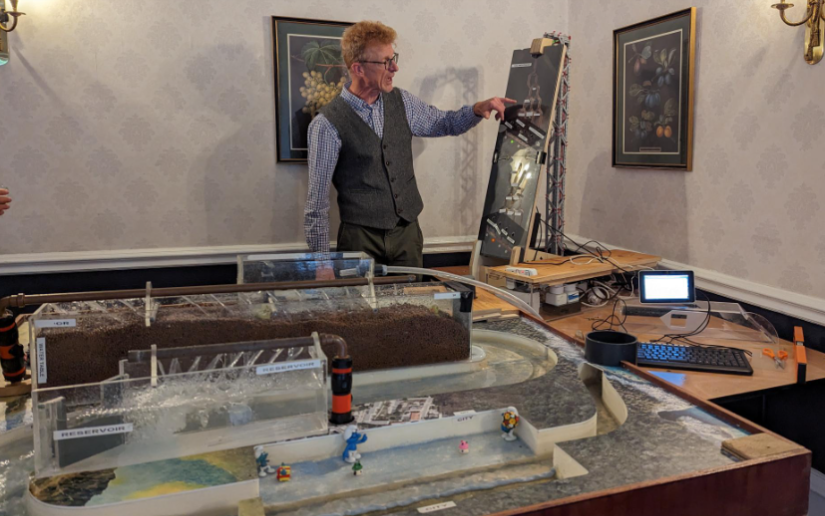Investigating, understanding and visualising floods through the Wetropolis Flood Investigator
- Academic lead
- Onno Bokhove, School of Mathematics, o.bokhove@leeds.ac.uk
- Industrial lead
- Richard Crowder, Jacobs, Richard.Crowder@jacobs.com
- Co-supervisor(s)
- Greg de Boer, School of Mechanical Engineering, g.n.deboer@leeds.ac.uk, Mark Trigg, School of Civil Engineering, m.trigg@leeds.ac.uk, Amrie Singh, School of Civil Engineering, cn17as@leeds.ac.uk
- Project themes
- Environmental Flows, Geophysical and Astrophysical Flows, Underpinning Methods for Fluid Dynamics
We introduce Wetropolis: a mathematical and physical model set-up. Wetropolis consists of a random weather or rain machine driving rainfall in a down-scaled river-catchment landscape. When this randomly determined rainfall is extreme, we will observe flooding in a conceptual city. Wetropolis visualises the random nature of a return-period or Annual Exceedance Probability (AEP) for extreme events. Instead of waiting for on average 100 years for a 1:100yr flood, Wetropolis’ return-periods for 1-2-3-day(s) of extreme events are shorter, circa 50s, 5min and 28min on average, while a “Wetropolis Day” is only 10s.
Interactions with flood professionals revealed that Wetropolis should be used as a policy and scientific flood investigator. Hence, we arrive at the following main objective: we will employ Wetropolis to investigate modern (machine-learning) forecasting tools, flood control, and validate model forecasts against Wetropolis as a scientific laboratory experiment.
 Come and see Wetropolis (photo courtesy: CDT)! E.g., on YouTube: https://www.youtube.com/watch?v=rNgEqWdafKk
Come and see Wetropolis (photo courtesy: CDT)! E.g., on YouTube: https://www.youtube.com/watch?v=rNgEqWdafKk
